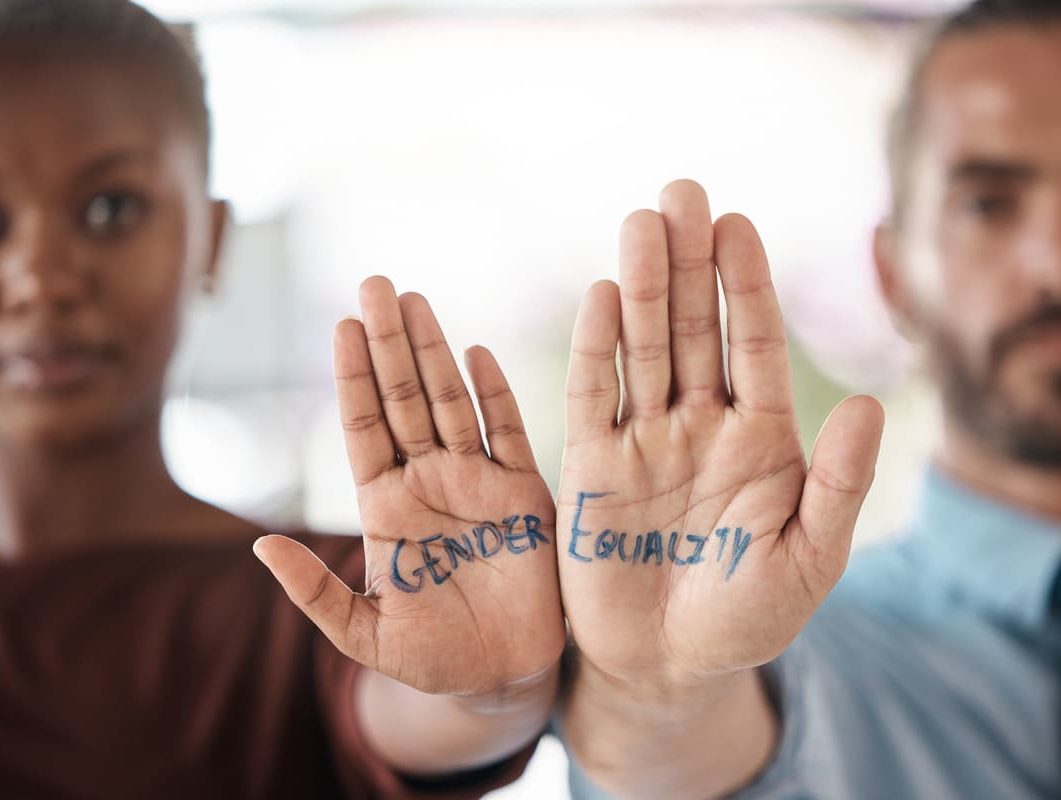
The Fee Is Free Unless You Win.
Top Rated Employment Law Firm
Protecting Families Since 1995
$400 Million Won
TABLE OF CONTENTS
Gender identity and gender expression discrimination occur when you experience unfair treatment in the workplace because of how you identify your gender or how you express yourself. Gender identity and gender expression are common phrases in today’s society. You may have a gender assigned at birth. However, it may not be the gender you identify with or how you wish to express yourself.
Companies that refuse to accept your gender identity or expression are violating your rights under the law. You have the right to live your truth as the gender for which you identify. You have the right to express yourself however you feel appropriate. If your employer denies you this right, you have the right to work with an LGBTQ attorney to help you stand up for your rights in the workplace.
A person is assigned the gender of male or female at birth. However, as a person develops, they may identify as a different gender. For instance, a man may identify as a woman (transgender) or vice versa.
Some people identify as non-binary (they do not identify with any gender) or cisgender (they identify with the gender they were born).
Gender identity also relates to the pronouns a person uses to identify themselves. Some people will use he or she pronouns. Others will use “they” to identify themselves.
Respecting gender identity means others must respect the pronouns you use to identify yourself as well.

Gender expression is how a person shows gender to society. A person may identify as male and yet dress in feminine styles with makeup and nail polish. In contrast, a person may identify as female and choose to wear their hair short and dress in clothing more in line with how men typically dress. How a person expresses themselves and their gender has nothing to do with their gender identity.
For instance, many people may perfectly feel content with their assigned gender. They may be heterosexual. Yet, they may still choose to dress wearing clothes from either or both genders. If you experience discrimination and harassment related to how your express your gender, you have the right to seek justice and compensation.
Employers, CEOs, supervisors, managers, coworkers, clients, customers, and non-employees who use an employee’s or job applicant’s gender identity or gender expression to make negative employment decisions are guilty of discrimination in the workplace.
If they refuse to use the proper pronouns to address a person based on their gender identity, they have committed an act of discrimination. Discrimination based on gender identity and expression targets the LGBTQ community and their allies in employment-related decisions.
Some examples of gender identity and expression discrimination include, but are not limited to:
When you choose to bring your claim for gender identity and expression discrimination against your employer, you are looking for compensation. Should you win your case, you may receive the following remedies from the court:
The laws not only protect you from discrimination in the workplace. They also protect you against retaliation, such as demotions, negative performance reviews, wrongful termination, and shift changes based on your gender identity or expression. Furthermore, you cannot get fired from work or retaliated against because you choose to speak up against workplace discrimination.
Federal laws require you to file a charge with the Equal Employment Opportunity Commission (EEOC) before filing a federal court complaint. You must file your charge within 180 days to 300 days, depending on your state.
State laws, however, provide different statutes of limitations. Some states provide a timeframe of 180 days. Others insist you file your claim within a few years. Consult a discrimination lawyer to determine the best laws for your case and ensure you file your claim within the proper time limit provided by law.
Discover how our expertise has helped clients overcome their legal challenges and achieve successful outcomes.
View All TestimonialsDuring the time that I really needed a good counselor and I was approaching different attorneys unfortunately before they heard the problem they were demanding a retainer fee. A friend of mine introduced me to the Derek Smith Law Group and I was very fortunate to be answered by Matt Finkleberg who was very polite and understanding and gave me a lot of confidence without asking for any fees in f... Read Full Testimonial
Matt Finkleberg is by far the best attorney I’ve ever hired!
Matt Finkelberg is an outstanding attorney. It was a pleasure to have him represent me for my employment case. He was very easy to talk to. He was very supportive and knowledgeable throughout the whole process. He explained the entire process to me and kept me informed every step of the way. Matt fought diligently throughout my case to make sure my case was represented best. I am very gratef... Read Full Testimonial
Matt Finkelberg is a top notch lawyer. He is very easy to talk to and truly cared about me as his client. He definitely earned my trust and confidence in his capabilities to represent me in the most professional respects. I give Matt and his firm the Derek Smith Law Group my highest recommendation to anyone who is seeking legal help for employee/employer related matters.
Matt Finkelberg is a life saver. During this whole process not only did I have a great lawyer but I also made a great friend. Matt was very attentive to my case, and mental health. Matt helped me during probably the darkest time of my life and for that I am forever grateful to have came across the Derek Smith law group. As a past client, I 100% recommend Matt Finkleberg. Matt provides a safe sp... Read Full Testimonial
It was a pleasure to have Casey represent and help me for my employment case. It was my first time needing an attorney, so I was a bit apprehensive at first – Casey took the time to answer all of my questions and fully explain everything to me, which really put me at ease. He was very attentive, supportive, and knowledgeable throughout the whole process – Casey would ask questions to ensure... Read Full Testimonial
matt is an excellent attorney. he handled my case with the utmost care and highly exceeded all expectations. i could not recommend derek smith and esp. matt finkelberg enough
It was a pleasure to have Casey represent and help me for my employment case. It was my first time needing an attorney, so I was a bit apprehensive at first – Casey took the time to answer all of my questions and fully explain everything to me, which really put me at ease. He was very attentive, supportive, and knowledgeable throughout the whole process – Casey would ask questions to ensure... Read Full Testimonial
You will be in great hands at this firm! Alyssa the managing paralegal is an absolute professional who excels at what she does. You can tell she truly cares about providing the best service possible, and is passionate about helping her clients. With Alyssa at the helm, this firm is a top-notch choice for anyone seeking assistance. Highly recommend!
Matt Finkelberg is Amazing and Devotional! It was a pleasure to have Matt represent me for my employment case. He was very attentive, supportive, and knowledgable throughout the whole process. Whenever I reached out he responded promptly which I greatly appreciated. Matt fought diligently and hard throughout my case to make sure my case was represented best. Thank you again Matt for everything.... Read Full Testimonial
Olivia is absolutely outstanding! She understands the emotional side of your case while being able to find the legal aspects of holding the employer accountable for breaking the law! Made a really terrible situation a little easier by explaining everything and helping me get everything in order and in the right hands. I would not use anyone else! Call them for any sexual harassment case... You ... Read Full Testimonial
Our dedicated attorneys are ready to fight for your workplace rights and ensure justice!
The court system takes time. You may work out a settlement with your employer before you file your claim with the appropriate agency or court. In that case, you may receive your settlement within 4 to 6 months of speaking with your attorney.
However, most times, the lawsuit gets filed before employers agree to negotiate towards a settlement. Settlement negotiations can take months to even years. You and your employer may reach a settlement at any point before the court enters a final judgment.
In June 2020, the Supreme Court decided gender identity is protected under sex and gender rights as provided under Title VII of the Civil Rights Act of 1964. Title VII prohibits employers and companies from discriminating against employees based on gender identity and expression. Employees working with companies with 15 or more employees are protected from discrimination based on their gender identity and expression.
Many states also maintain laws that protect employees from discrimination based on gender identity and expression. The following state and municipal laws protect employees from discrimination based on gender identity and expression:

Our experienced legal team provides reliable services in key U.S. cities, ensuring expert assistance for workplace discrimination and employment law matters wherever you are located.
 New York City
New York City
 New Jersey
New Jersey
 Philadelphia
Philadelphia
 Miami
Miami
 Los Angeles
Los Angeles
 San Francisco
San Francisco
 San Diego
San Diego
 Washington DC
Washington DC